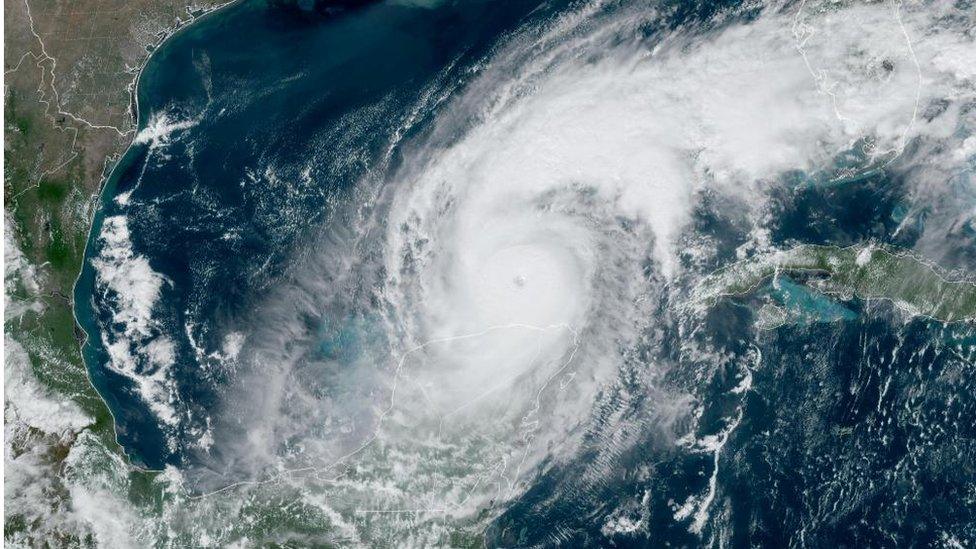Japan's strongest typhoon in 25 years kills at least six
- Published
Typhoon Jebi has left tens of thousands of people without power
Japan has been hit by its strongest typhoon in 25 years, causing at least seven deaths and 200 injuries.
Typhoon Jebi made landfall in western areas, bringing heavy rain and reports of winds up to 172km/h (107mph).
In Osaka Bay it swept a tanker into a bridge and in Kyoto parts of a railway station roof came down.
Officials ordered more than a million people in affected areas to evacuate their homes amid warnings of high waves, flooding and mudslides.
It has already left tens of thousands without power and authorities have urged people to move to safety.
Allow X content?
This article contains content provided by X. We ask for your permission before anything is loaded, as they may be using cookies and other technologies. You may want to read X’s cookie policy, external and privacy policy, external before accepting. To view this content choose ‘accept and continue’.

The storm made landfall on Shikoku island around noon on Tuesday local time and then moved across Japan's largest main island of Honshu.
It is expected to weaken as it moves north.
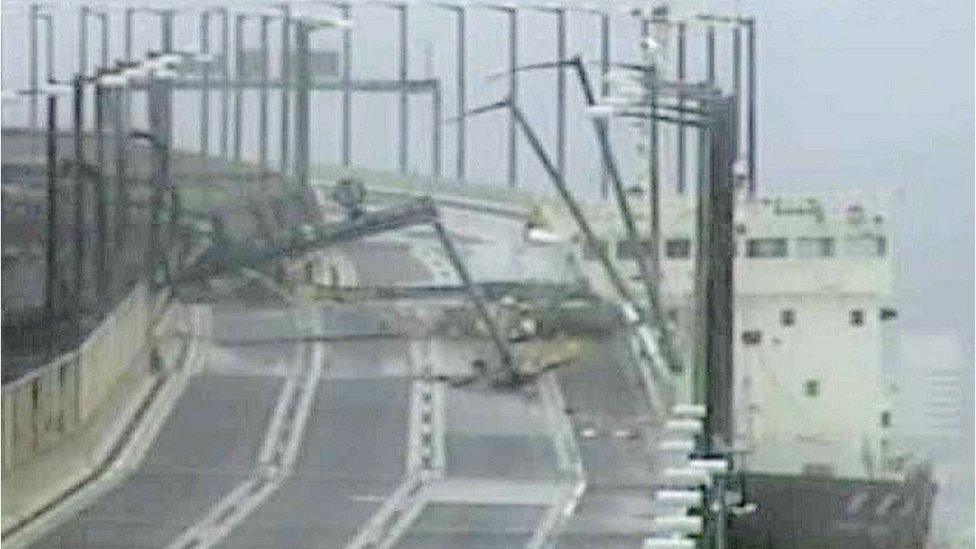
A tanker ship smashed into a bridge in Izumisano
Jebi is the first typhoon classed as "very strong" by the country's weather agency, external to make landfall on Japan's main islands since a typhoon left 48 people dead or missing in 1993, Kyodo reports.
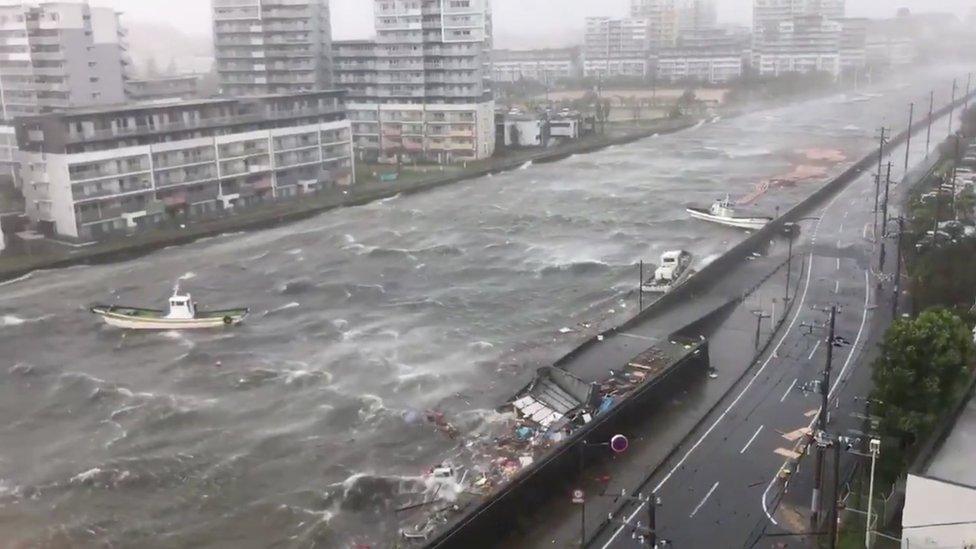
Unmoored boats floated up a river in Nishinomiya
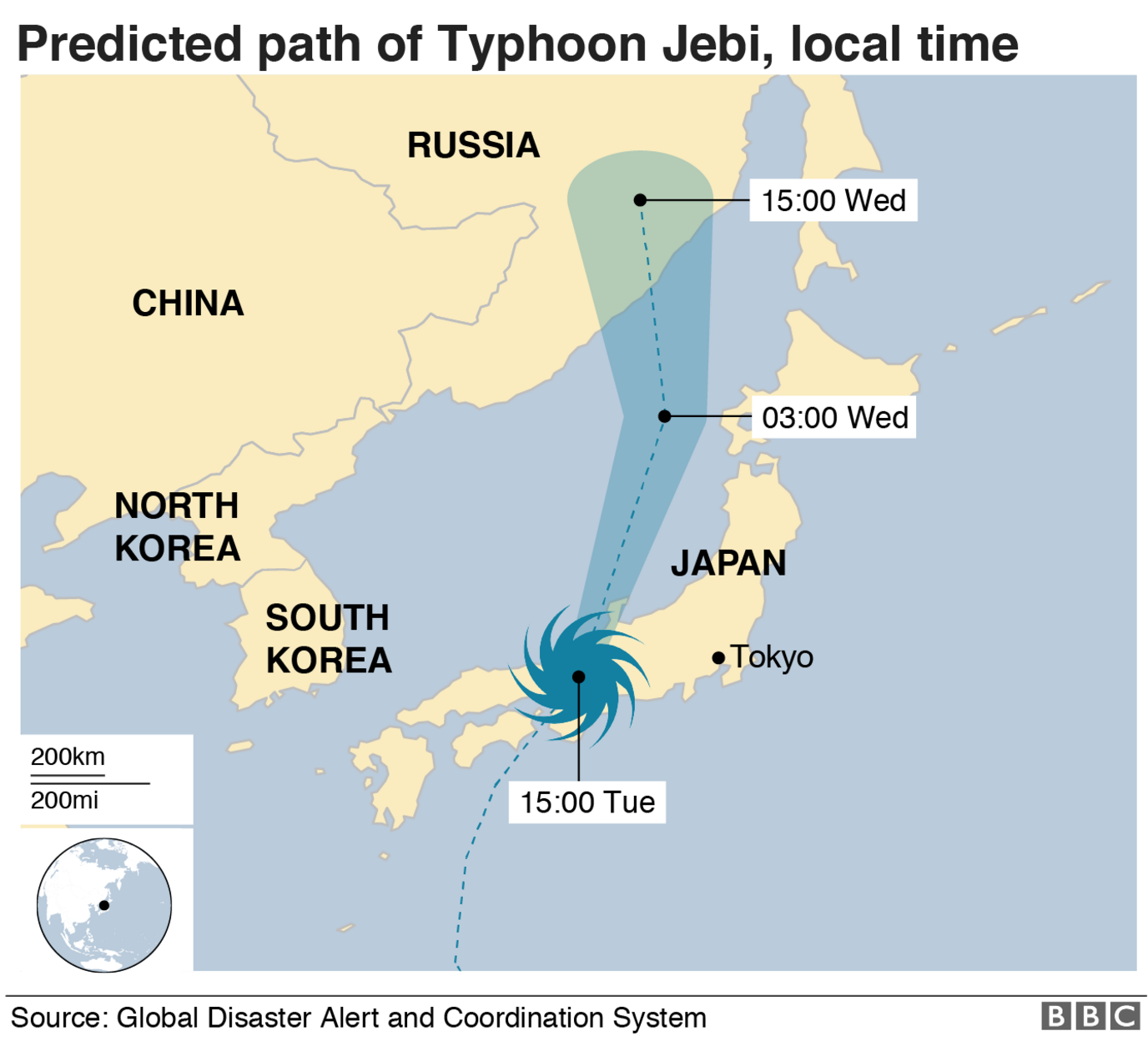
Hundreds of flights, trains and ferries have had to be cancelled.
Flooding covered the runways at Kansai International Airport in Osaka, which is built on a man-made island in a bay.
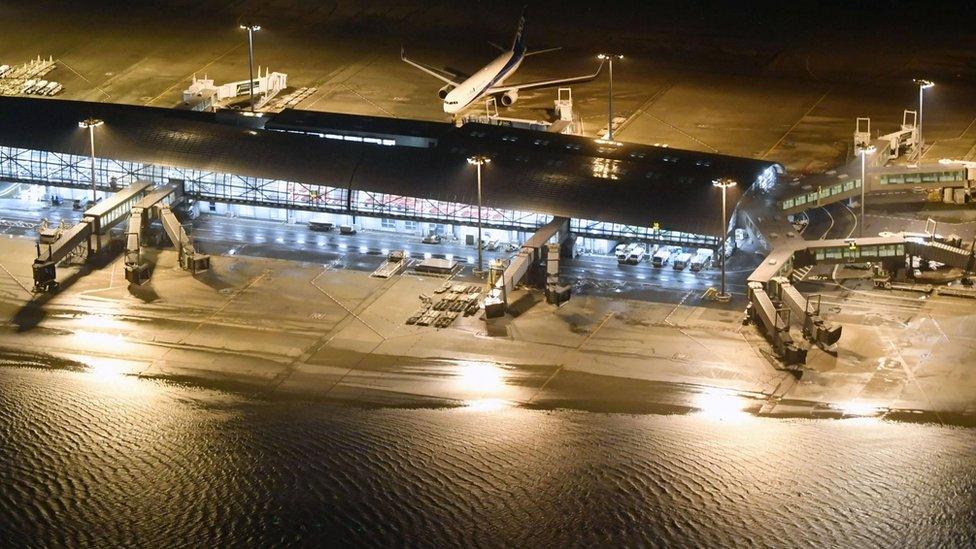
The runway at Kansai airport was flooded
Universal Studios Japan, a popular amusement park near Osaka, was closed.
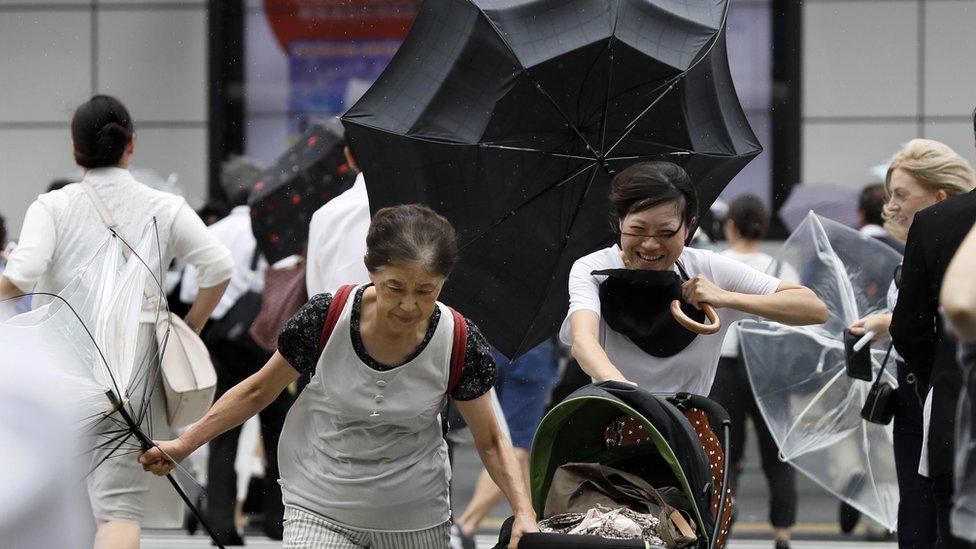
The storm hit with winds of up to 216km/h (135 mph)
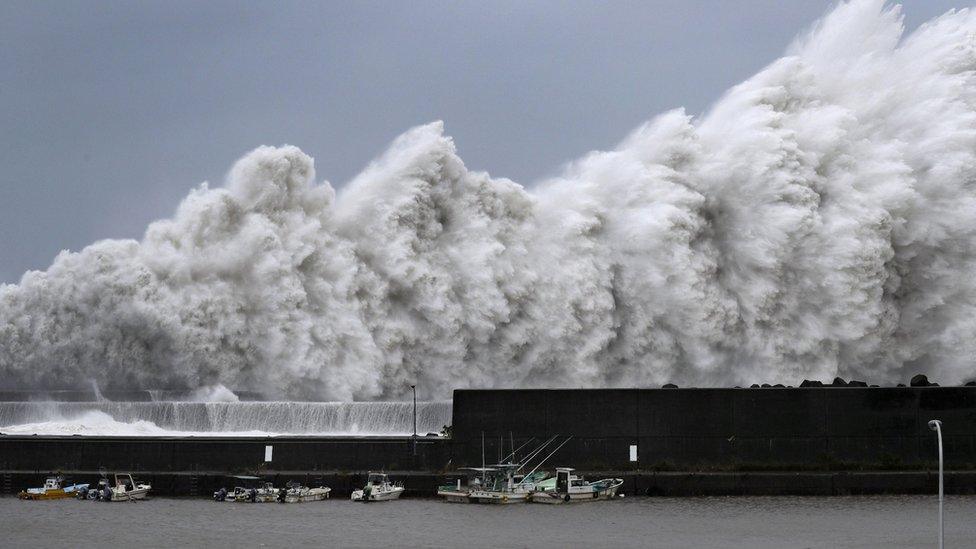
Huge waves were whipped up
Prime Minister Shinzo Abe convened an emergency meeting and called on people "to take action to protect your lives, including preparing and evacuating early".
Footage from the storm making landfall showed giant waves crashing against the coastline, and flying debris.
Japan's weather agency has warned of possible landslides, flooding and violent winds, as well as high tides, lightning and tornadoes in the areas affected.

The country is regularly struck by major storms and this summer has been one of extreme weather.
In July landslides and massive floods - the worst in decades - killed more than 200 people. That was followed by a record deadly heatwave.
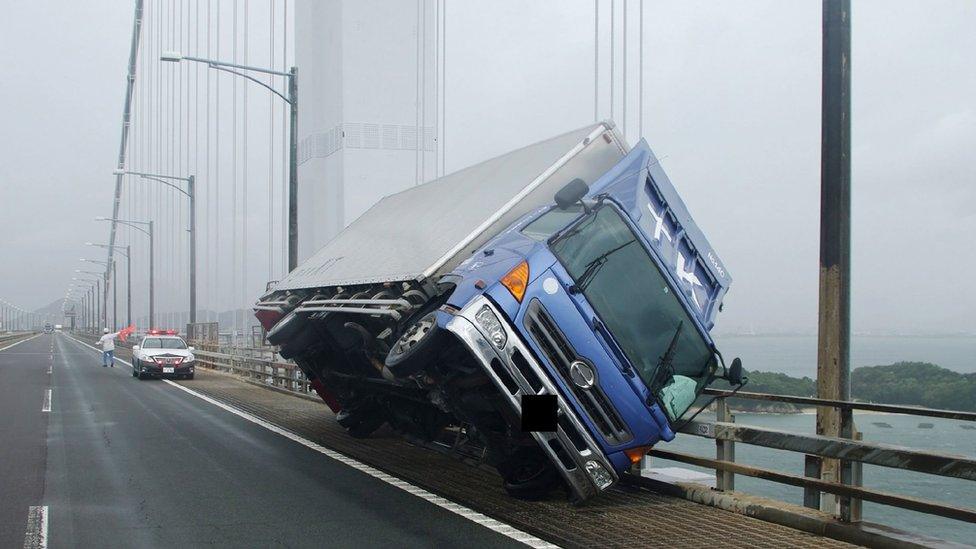
The winds were strong enough to turn over trucks
- Published4 September 2018
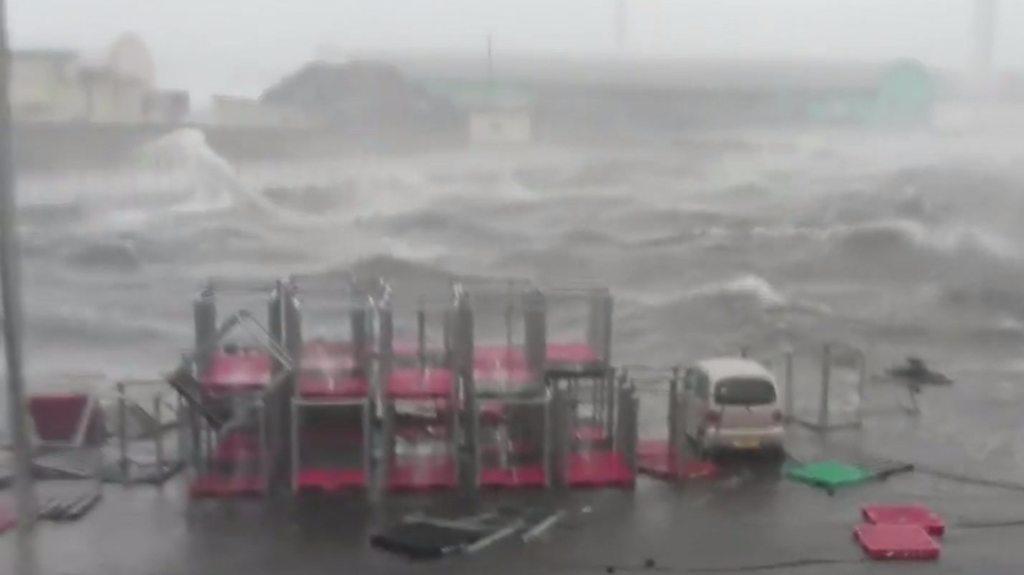
- Published25 August 2018
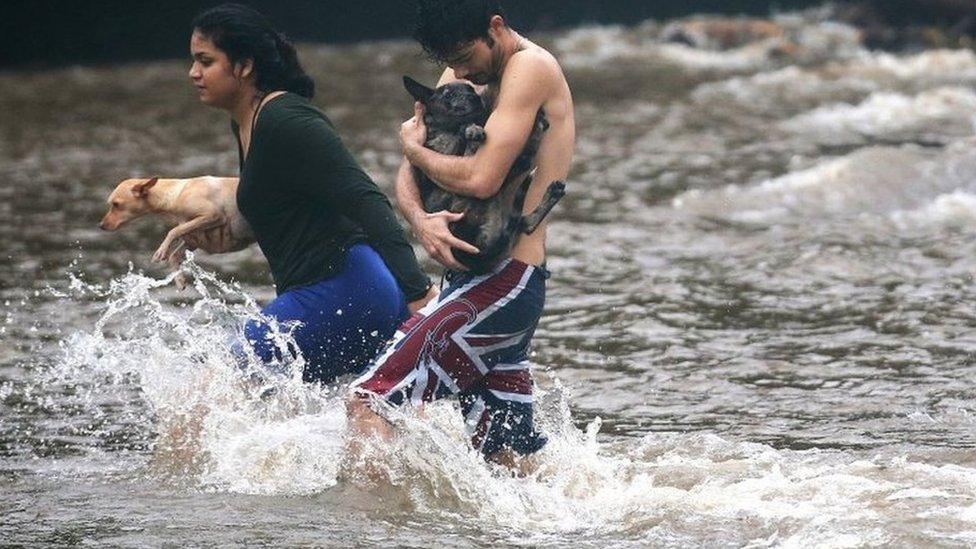
- Published24 July 2018

